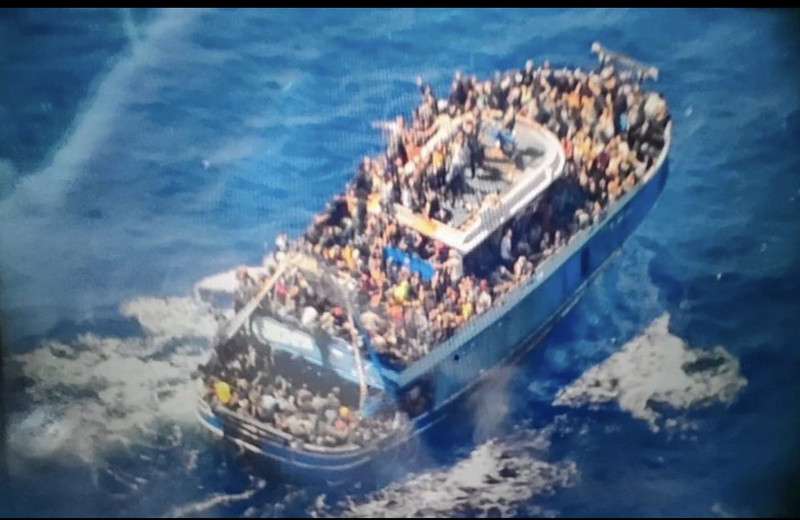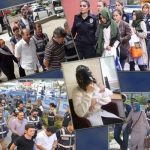Doubts have been cast on whether Greece will carry out a proper criminal investigation into the 14 June sinking of the Adriana trawler that has likely killed over 500 people.
“In this particular case, facts must be cleared out by all means,” said Juan Fernando Lopez Aguilar, a Spanish socialist MEP who chairs the European Parliament’s powerful civil liberties committee.
Lopez Aguilar’s comment to EUobserver on Monday (3 July) comes as testimonies of people who survived the sinking differ from the official version of events according to the Greek coast guard.
“We’re talking about hundreds of innocent lives, including women and children. In the middle of the night,” he said.
“It is horrifying. So it is impossible to normalise it or to underestimate the relevance of the truth, particularly when there are survivors witnessing that something went really wrong,” he said.
Last week, he sent a letter to the European Commission asking them to help launch an independent and transparent international investigation into the major tragedy.
Such a probe could be carried out by international officials he said, such as Dunja Mijatović who is human rights commissioner at the Council of Europe, a Strasbourg-based watchdog.
But Mijatović, in an email, said she “cannot conduct this investigation”, noting that the prosecutor of the Greek Supreme Court has opened a probe into the shipwreck.
“The nature of this event clearly calls for international scrutiny. I will continue to engage with the Greek authorities to insist that all these requirements are met,” said Mijatović, adding that a disciplinary investigation within the Greek coast guard also seems indispensable.
For its part, the European Commission is currently drafting its response to Lopez Aguilar’s letter.
The 14 June tragedy is one of the worst within Greece’s search-and-rescue zone, drowning scores of people from Syria, Pakistan and Egypt.
Greek officials are blaming the tragedy on nine suspected smugglers currently under arrest. But the official version of events have shifted over time, casting further doubts.
On June 15, a Greek coast guard spokesperson said no rope had been attached to the Adriana.
A day later, they said a rope had in fact been briefly attached. They also said the boat continued its course to Italy before sinking several hours later.
But a BBC investigation says the boat had in fact not moved at all.
A further investigation by LightHouse Reports, along with other media outlets, says the Greek coast guard then tampered with official statements to conceal their role in the sinking.
Their investigation also found that the Greek coast guard had pressured survivors into naming certain people as the smugglers.
And while testimonies by nine survivors did not initially fault the Greek coast guard, six later said the boat sank shortly after a rope had been attached.
Similar accounts were told to Reuters news agency.
“They quickly pulled us and the boat capsized. It moved to the right, to the left, to the right and it capsized. People started to fall on each other,” a survivor told the news outlet.
Frontex, the EU’s border agency, is also demanding clarification amid reported demands their fundamental rights officer wants to pull operations from Greece. The threat has triggered a sharp response from Greece’s new centre-right migration minister Dimitris Kairidis.
“I think it would be unthinkable for Frontex to leave our country,” he told state-run ERT television, earlier this week.
The Warsaw-based Frontex agency had also given Greece until July 10 to explain alleged pushbacks on the Greek island of Lesbos.
The dispute comes in the context of widespread abuse and numerous reports and evidence over the years of illegal pushbacks of migrants and refugees from the Greek islands and along the shared land border with Turkey.
Greece has in the past dismissed evidence of illegal pushbacks and denies any wrongdoing. But its authorities have also been accused of fake investigations into other egregious abuses of migrants and asylum seekers.
By NIKOLAJ NIELSEN
Source. EU Observer



